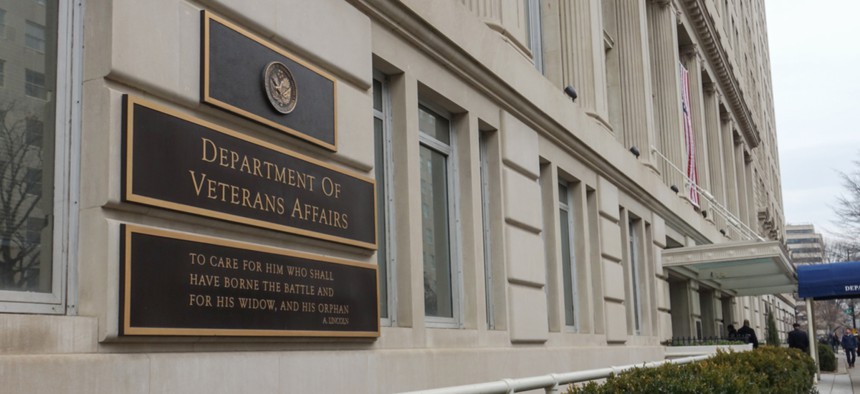
bakdc / Shutterstock.com
The VA May Have Wrongly Denied 1,300 Veterans’ Claims Of Sexual Abuse
In just six months last year, hundreds of claims were mishandled by the Department of Veteran Affairs.
More and more active U.S. service members are reporting sexual abuse. So are veterans—but a recent report found that at least 1,300 sexual trauma claims may have been wrongly declined by the Department of Veteran Affairs.
In 2017 alone, more than 5,200 active members (pdf, p.9) of the military reported they’d been sexually abused during service. This is a 10% increase over the previous year, likely linked to increased attention and legislative action in recent years. Still, the cases that get reported are only a small percentage (pdf, p.11) of total incidents, according to the Department of Defense’s estimates.
Veterans were even more likely to come forward with stories of sexual abuse or harassment in the military. Over the past three years, the Department of Veterans Affairs says it processed about 12,000 claims annually for disability compensation and other benefits due to sexual trauma. Seventy-nine percent of claimants were women.
Since 2011, VA guidelines have supported victims in their process of coming forward. The agency applies a so-called “liberal approach” to to the kind of evidence of abuse it accepts: For instance, it looks for circumstantial “markers” that would corroborate the survivor’s claim, such as changes in behavior, substance abuse, unexplained leave of absence, changes in relationships.
Yet the Office of the Inspector General found that many claims have been reviewed inadequately. According to a report released on Aug. 21, about 1,300 claims of Post Traumatic Stress Disorder connected to sexual trauma during military service were denied without following the correct procedure between April and September 2017 alone.
The OIG sampled 169 claims filed during that period and found that half—82 cases—had been mishandled and wrongly rejected for simple procedural errors. The causes of such mishandling have been found to be primarily procedural: In 28% of cases, survivors who qualified for medical examinations to confirm their claims were not given one. In 13% of cases, there was a failure in gathering evidence. In 11%, the veterans filing the claims were not contacted by the VA’s officers reviewing the claims. And in 10% of cases, the OIG found that reviewers misjudged claims of sexual abuse due to incomplete and controversial information.
This only reflects a few months worth of processing, which means that thousands more claims may have been mishandled over the years. According to the report, reviewers may not have received adequate training, and did not follow guidelines and procedures. Senator Jeanne Shaheen of New Hampshire has issued a letter to the VA demanding specific details about how it intends to move forward in the review process.
The VA told Quartz that it concurs with and approves of the OIG’s recommendations, and that it will begin implementing right away. “We know this is an area where the department can improve,” a spokesperson said, adding that the VA has required all officers processing claims to take specific training to handle military sexual assault.
Further, the agency will review all denied claims decided between October 2016 and June 2018. “If mistakes were made,” the spokesperson said, “we will fix them in order to ensure affected veterans are getting all of the support, benefits and services they have earned.”







